- Home
- Brian Garfield
Threepersons Hunt Page 8
Threepersons Hunt Read online
Page 8
A boy of eleven or twelve answered his knock and Watchman asked if Mr. Luxan was home. Through the open hallway he could smell beef cooking. The boy told him to wait here and Watchman winced at the boy’s show of dislike. Evidently the moccasin telegraph had him confused with the boogie man.
Luxan’s appearance was anticlimactic. He wore baggy pants cinched by a belt at the top, like a mail sack; he smelled of the gasoline he had used to wash the grease off his hands. He was a big man, at least sixty years old, twenty pounds overweight and hair shot with grey. A sprig of hair stood up disobediently at the back of his head, glistening with the water with which he’d tried to stick it down.
Luxan came outside and pulled the door shut behind him. It was a slight and he meant it to be noticed. “I know why you are here.”
His speech had the liquid gutteral r’s of the older Indian generation. He was a man who would not think it archaic to state that he had talked with the sun and the earth and the river and they had told him not to cooperate with the white-Indian outsider.
Watchman said, “Grandfather, I’d like to help your nephew Joe.”
“I am no longer an uncle to this one. I can’t help you.”
“I understand he always turns to you when he needs wise counsel.”
“I have told him many years ago not to come here any more times.”
“He might come to you now, Grandfather. He has no one else. His wife is dead.”
“Yes I know that. She was witched, I hear.”
“Where did you hear that?”
“It is what they say.”
“Who would want to throw a spell on Joe’s wife?”
“I don’t know. But I heard she sure got real sick before she went out in that car.”
“Do you think Joe will come back here now?”
“I don’t know what that one might do.” Luxan’s face hardened like dark polished wood. “But he would be a fool to come here. He would know it is where they look first.”
“Where else would he go?”
“The whole world of mountains and aeserts is out there.” Luxan’s big lips went all shapes when he talked. His hair had distributed a powdering of dandruff on the shoulders of his dark satiny shirt.
Beyond the house Watchman saw a teen-age boy on a donkey driving three cows in toward the little corral in the woods. A magpie pecked at lice on the back of one of the cows.
Luxan said, “I can see what is in your head. If you wish to see if he is in my house you can come look.”
It was a challenge and Watchman did not turn it down out of politeness. He followed the old man inside. Luxan moved with deliberate strength; age had not hurt his coordination.
The front room on the right was a living room, twelve by fourteen. The furniture was what you could buy in the trading post: inexpensive, functional. There were two old stuffed chairs in need of reupholstering. The room had no closets and no occupants and Watchman followed Luxan out of it across the hall into the other front room. There were two bunks and some children’s wooden furniture. Watchman opened the closet and got the smell of old sneakers. He said, “I guess you’re a good businessman.”
“I work hard and I have a great many brothers-in-law.”
There was another children’s room, two double-deck bunks in it and a litter of clothes and wooden toys. Opposite it was a slightly larger bedroom with a straw tick on the floor. Watchman looked in both closets and the bathroom. Across the hall was another empty bathroom and then Luxan showed him the utility room with its oil burner and water heater, and after that the corridor emptied into a kitchen that ran the width of the back of the house.
The twelve-year-old boy and a younger brother sat at a chrome dinette table playing checkers. A middle-aged woman with the lean handsomeness of a grande dame stood beside the stove chopping vegetables into a colander. A girl about fourteen, with the same face as the girl in the roadhouse but no lipstick, was reading a book at a small wooden table in the far corner. There was a small refrigerator and a sink and a lot of open shelves, and the whole back wall was windows looking out upon arid fields that rolled away beyond the fringe of cottonwood trees.
“It’s a very fine house, Grandfather.”
Luxan was the only person in the room who acknowledged that Watchman existed. All the others including Luxan’s wife were staring at fixed points on the walls or the floors. The twelve-year-old boy was continuously raking the hair back from his forehead; with an impatient gesture he slammed a checker across the board and said, “King me,” and cleared his throat because his voice was changing.
“Now I have told you and your own eyes have told you he is not here,” Luxan said.
The older boy who had brought the cows in came through the back door and stopped in his tracks to lay a narrowed stare against Watchman. He didn’t speak at all.
Watchman said, “It is possible you’ll see Joe, or hear from him.”
“It is possible.” Luxan conceded nothing.
“He ought to give himself to me. It will be bad for him if we have to find him ourselves.”
“He has made his trouble,” Luxan said. “Let him get out of it by himself.”
“Why have you turned against him, Grandfather?”
“I’ll tell you, men get bad sometimes. Sometimes they’re witched bad and sometimes they just get bad.”
“And Joe got bad, and you wash your hands of him.”
He wasn’t sure Luxan understood the idiom. But Luxan said, “Joe never wanted to help anybody, he was never any good to his own clan. He made a lot of fights and finally he didn’t have any friends around here at all.”
“That when he took the job on the Anglo ranch?”
“Around that time, I think.”
“And you haven’t talked to him since then?”
“I saw him one time, maybe two times when they arrested him that time. Before he went away to the prison.”
“But not since then.”
“I always told him he shouldn’t get drunk from too much beer. But he stopped listening. When a man stops listening to his elders there isn’t anything more they can do for him. He has his trouble, we all know this—but he has to find his own way out of it this time.”
Puritanical righteousness and forgiving compassion made a strange admixture in the old man. Watchman thanked him and made his way out of the house, feeling no closer to the fugitive Joe than he’d felt twelve hours ago.
3.
Driving to the mission he passed the Agency cop Pete Porvo. Porvo’s prowl car was headed the opposite way and he didn’t wave when Watchman passed him; there was a nod but not a smile of greeting.
The mission was right on the road below Cedar Creek. Watchman braked to avoid hitting a pariah dog on the oil-smudged road. He turned around and parked facing Whiteriver and when he got out two women were watching him: an Apache, her baby riding on a cradleboard on her back, and a big Anglo woman in olive corduroy trousers too large for her buttocks.
“Mrs. LaSalle?”
“Yes?…”
“My name’s Watchman. I wonder if the pastor’s around.”
“He just went to tape up the garden hose. You’ll find him in the workshop.” She shaded her eyes and pointed the way.
It was summer vacation and there were no children around the mission school. It was a little greener than the ones up on the Navajo Reservation but the mock-adobe architecture, the severity of it, was enough of a reminder to put the taste of brass on Watchman’s tongue. These were the schools where Indian kids were flogged for acting like Indians instead of whites. The missionaries were maybe a little less weak and venal and corrupt than their predecessors but they still believed you had to drill private notions of greed into Indians before they could become Christians and be saved.
George LaSalle was binding fricton tape around the hose nozzle like a tourniquet. Watchman started talking and then listened, and found LaSalle to be a vigorous old zealot filled with a lot of prejudicial nonsense from the Rous
seau lexicon of antiquated idealism: “I understand my Inyans, you see.”
LaSalle evidently had been born unawares and his many years’ experience among the simple savages hadn’t taught him anything. He was the sort of white man who indulged in self-flagellating atonement for the sins of his ancestors against Indians but his atonement took the form of insensitive charities and terrible advice. The key to the behavior of men like LaSalle was their conviction that the tribes were their personal wards.
“I tried to set him on the straight and narrow, God knows. But that boy’s a pipperoo, I swan. A jim-dandy horseman, by the way—I kept telling him, if he only applied himself he’d be a crackerjack rodeo performer.”
LaSalle’s eyes flicked at Watchman like a lizard’s tongue. The gleaming unhealthy skin was stretched over his bones almost to the point of splitting; he had a sepulchral face and wispy tufts of white hair. He waved the hose around as though he were a snake charmer.
“He was a stubborn boy, you know; I imagine he’s still a stubborn boy. I use the word ‘boy’ advisedly—he never allowed himself to grow up.”
“Not even after he became a husband and father?”
“Well to be sure I never saw him much after his baby was born, but all you need to do is take a look at the evidence. That was a pretty fast crowd they ran with up at Rand’s place.”
“What crowd was that?”
“Well I shouldn’t be telling tales out of school, should I, but I must say it was I who advised him against taking the job up there. After all, he had a perfectly good position at the sawmill right here in Whiteriver, and he did have a degree of seniority there. I think she turned his head, though. One word from her and he was off wherever she pointed him. I realize it’s old-fashioned nowadays to speak of women leading men astray, but I swan she was a juicy little thing, she turned a great many heads, you know.”
“I’d started to get the impression she was a steadying influence on him.”
“Hardly, I’d say. She knew that crowd quite well, you know—the Rand bunch, that is. Not Mr. Rand himself, of course, but the hangers-on.”
“Like Ross Calisher?”
“Of course. She was the one who sweet-talked poor Joe into moving up to the ranch where he’d be closer to Calisher. She wanted him to learn rodeoing from Calisher. I kept telling him he could learn it just as well down here.”
“I knew Calisher was a big-time rodeo cowboy, but was he still doing it?”
“He’d broken a few too many bones to stay active at it, but you never saw the man but he wasn’t surrounded by an adoring pack of would-be apprentices. Some of them were fairly accomplished, I believe; certainly it was impossible for a boy like Joe to get anywhere near him—there was too much cracker jack competition. The place was rather like a thoroughbred racing stable the way it kept turning out rodeo competitors. I’m sure that’s why Rand hired Calisher in the first place. To him it was like buying a champion stud horse—and I assure you that’s more than a loose analogy.”
Watchman nodded. “Calisher was fast with the ladies.”
“The place festered With it,” LaSalle said obscurely. “Affairs all over the place, I understand—clandestine types in the bushes every night. The place had a rancid reputation, you know. I’m not sure if it still does. But I swan, the talk you heard … Naturally it was just the place to attract a woman like Maria Poinsenay.”
“They tell me she was having an affair with Calisher— that’s why Joe shot him.”
“I warned him not to move there. You could see that sort of thing was in the cards. Loose morals, violence, a brazen crowd … it was inevitable. The atmosphere made it nearly impossible to avoid that sort of thing. They were all having affairs. Rand’s own wife was having an affair with that lawyer, Kendrick.”
“Kendrick? I thought he wasn’t on speaking terms with Rand.”
“When has that ever prevented such things from happening? She divorced Rand, you know—she’s married to Kendrick now.”
“When did that happen?”
“I don’t know, several years ago.”
“Before or after Calisher died?”
“I’m sure I couldn’t tell you.”
LaSalle had a vivid imagination fueled by the excitement of forbiden fantasies. He was typical of a good many missionaries Beneath his theatricality was a curious undercurrent of fear—perhaps an unhappy fear that his own failures were too obvious.
“If he came back here,” Watchman said after a bit, “where would he go?”
“To hide, you mean. Well I’m sure I couldn’t say. Of course there are a lot of shirttail relations—the clan structures being what they are. He has a sister here, you might try there.”
“I plan to. Did he have any close friends his own age?”
“Not many who are still here. The younger ones tend to drift away. The old women are constantly complaining about it, how the young men have forgotten how to carry baskets for their relatives. It’s only a saying, of course, but it holds a great deal of meaning.”
“I know.”
“More than half the young people move off the reservations nowadays. They work in non-Indian jobs.”
Watchman was one of those; he didn’t press the point. “His wife’s family is still down on the San Carlos, is that right?”
“I suppose so. I doubt they’d be much help to you. They weren’t on good terms. At any rate an Apache isn’t allowed to talk to his mother-in-law except through an intermediary—he must avoid her, never be in the same house or even be caught looking at her. They still keep these customs, you know, even though we keep trying to enlighten them.”
Watchman covered a smile. It was becoming more apparent that LaSalle didn’t realize he was an Indian. Perhaps he was so accustomed to looking at Indian faces that he no longer made the distinctions. Watchman’s state-police identification had triggered all the reflex associations; and LaSalle was a man of fundamentalist faith, disinclined to exercise any curiosity.
“There is one young man still in Whiteriver who used to be friendly with him. Not a very savory boy, I’m sure. He’s called Oto, Jimmy Oto.”
Tom Victorio had mentioned the name. Watchman said, “He works in town?”
“I don’t think he works at all. Welfare case. He married a girl from the Twagaidn clan—they live in that cluster of wickiups several miles northeast of town. It’s a poor section, even for this place.”
“Were they close enough friends for Joe to go to him for help now?”
“They were like this when they were schoolboys.” LaSalle held up two fingers overlapped together. “They were always up to their ears in horrible pranks. I had to discipline the two of them constantly. But I don’t see much of Jimmy any more, and I’m sure I couldn’t say whether they’re still as close as they were. Remember it was more than ten years ago.”
4.
Sunset. The squalls had moved on to the east and the western sky was vivid with a sprawl of color. He crunched into the parking space in front of the trading post and saw Dwight Kendrick rolling forward from the council house in his grey Corvette. Watchman walked over to the car and Kendrick gave him a civil nod.
“Pretty spectacular sunset,” Watchman said.
“I wouldn’t know. I’m color-blind. How are your investigations proceeding?”
“I wouldn’t say they were proceeding at all.”
“Well they all tend to develop bad cases of lockjaw with strangers,” the lawyer said blandly.
“The sooner he gives himself up the easier it’ll go on him. Somebody ought to tell him that.”
Kendrick smiled coolly. “You’re not very subtle, are you. The fact is I haven’t seen him and I don’t expect to. He’d be an idiot to come back here.”
“I doubt he’s got much choice. He doesn’t know anyplace else.”
“He was in the Army.”
“Where’d he do his basic training?” Watchman asked without real interest.
“Fort Ord, I believe. But that’s
a lot of miles from here.”
“He’d know the towns around there, though.”
“It might be worth a try,” Kendrick said. He was gunning his engine; now he put it in gear and Watchman stepped back and watched the Corvette eel into the road.
He bought a sandwich in the trading post and made that his supper and washed it down with a can of ginger ale. From the booth on the porch he put in a station call to Buck Stevens’ apartment.
“How’s business, Sam?”
“Slow.”
“You coming back?”
“I’ve still got to talk to his sister. I’ll probably overnight in a motel, most likely Showlow.”
“Then I’d better give you what I’ve got so far. Where are you, pay phone?”
“Yes.”
“I’ll call you back so you don’t run out of dimes. What’s the number?”
Watchman waited for the phone to ring and answered immediately. “Okay, go ahead.”
“Yeah. Item. Maria Threepersons and the kid, Joe Junior. They had it pretty good up in Sunnyslope. I talked to some neighbors and had a look at the house—they didn’t lack for first-rate furniture. There’s even one of those above-ground swimming pools.”
“Where’d they find that kind of money?”
“I’m trying to find out. Item, she wasn’t just a clerk in that curio shop, she ran the place. Manageress, whatever. There’s two girls working there now but they don’t seem to know who owns the place. Curioser and curioser, right?”
“Go on.”
“She moved to Phoenix right after Joe went to the pen. The curio shop opened right away, with her running it. She was putting up in an apartment court then but it was only a couple months, then she bought the house.”
“Mortgage?”
“I’ll find out tomorrow. Anyhow the color TV and stuff came damned quick. You get the picture?”
“Enough. She had a benefactor. Any signs of a boyfriend?”
“The neighbors were a little cagey. they didn’t want to look like busybodies, but I got the idea she had some dates with local bachelors. Nothing serious. There was only one steady visitor and he didn’t look rich, according to what they told me. An Indian.”

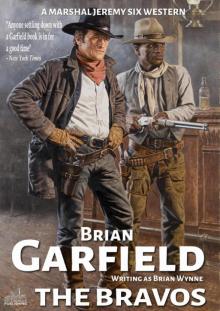 Marshal Jeremy Six #3
Marshal Jeremy Six #3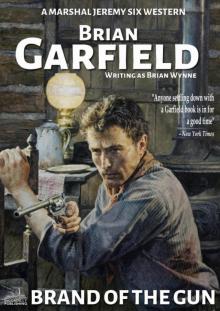 Marshal Jeremy Six #6
Marshal Jeremy Six #6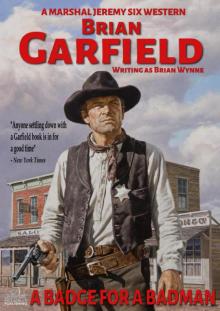 Marshal Jeremy Six #5
Marshal Jeremy Six #5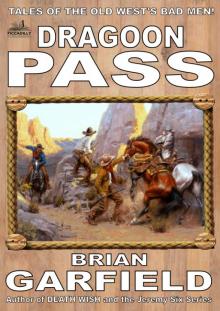 The Outlaws 2
The Outlaws 2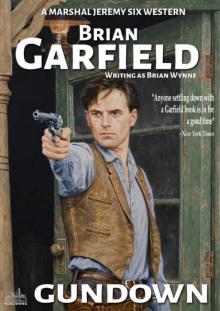 Marshal Jeremy Six #7
Marshal Jeremy Six #7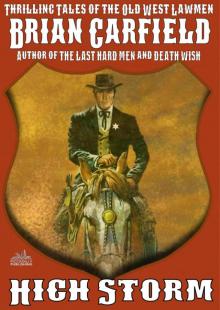 The Lawbringers 4
The Lawbringers 4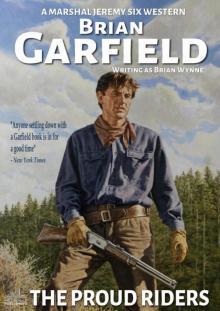 Marshal Jeremy Six #4 the Proud Riders
Marshal Jeremy Six #4 the Proud Riders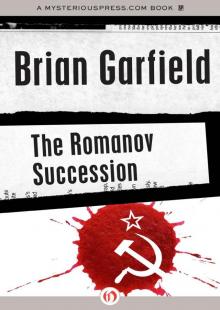 The Romanov succession
The Romanov succession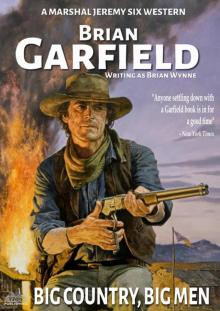 Marshal Jeremy Six #8
Marshal Jeremy Six #8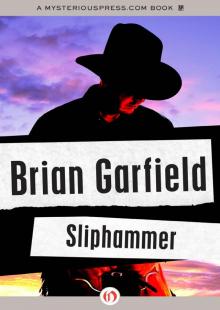 Sliphammer
Sliphammer Line of Succession
Line of Succession Deep Cover
Deep Cover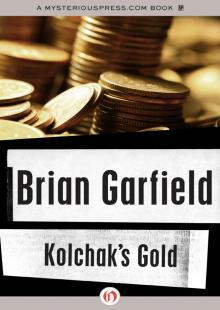 Kolchak's Gold
Kolchak's Gold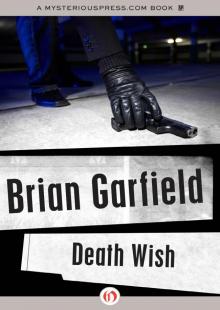 Death Wish
Death Wish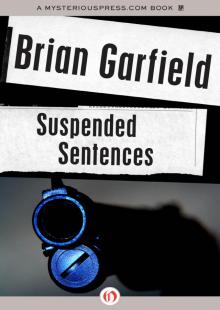 Suspended Sentences
Suspended Sentences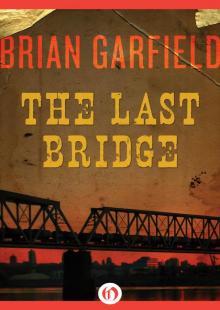 The Last Bridge
The Last Bridge Relentless
Relentless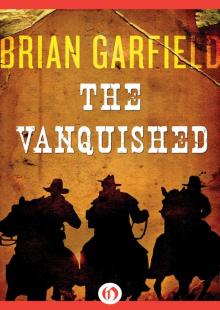 The Vanquished
The Vanquished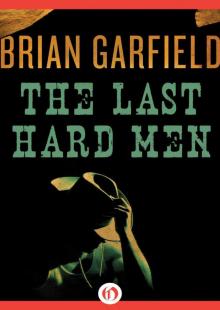 The Last Hard Men
The Last Hard Men Hit and The Marksman
Hit and The Marksman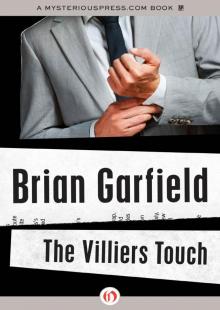 Villiers Touch
Villiers Touch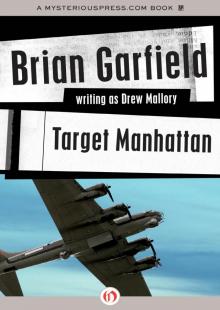 Target Manhattan
Target Manhattan Marchand Woman
Marchand Woman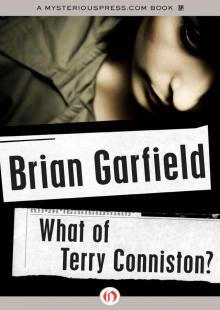 What of Terry Conniston?
What of Terry Conniston?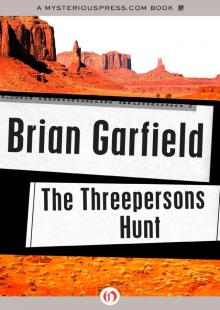 Threepersons Hunt
Threepersons Hunt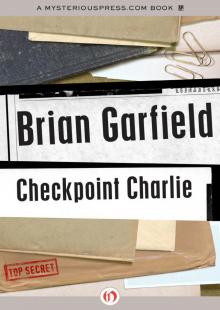 Checkpoint Charlie
Checkpoint Charlie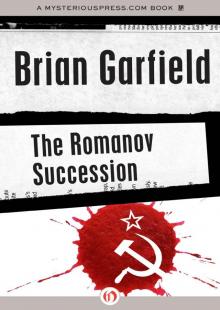 Romanov Succession
Romanov Succession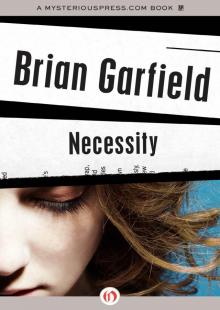 Necessity
Necessity Death Sentence
Death Sentence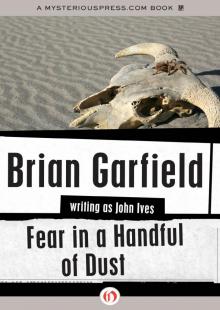 Fear in a Handful of Dust
Fear in a Handful of Dust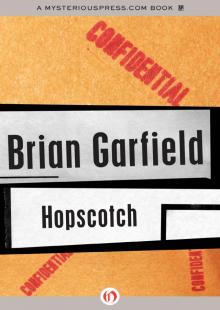 Hopscotch
Hopscotch